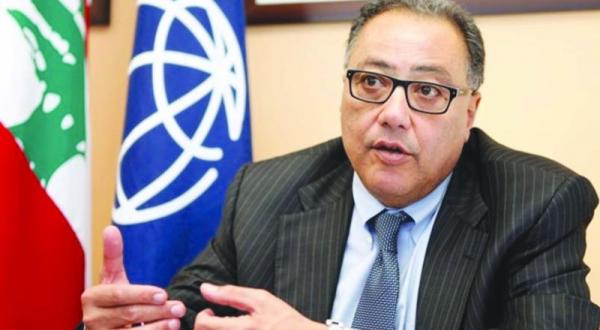The Vice President of the World Bank for the Middle East and North Africa Hafez Ghanem confirmed to Asharq Al-Awsat that the World Bank “aims to give $20 billion to the Middle East to help ease the Syrian crisis” within the next five years.
The figure is three times what the World Bank has spent up until now, and Ghanem added that “we have given $4.9 billion to the Middle East and North Africa since July last year and most of this went to Iraq, Egypt, Jordan and, to a lesser extent, Lebanon. We have already started the increase, as before the Syria crisis we were giving $1.6 billion to the region every 12 months”.
With regards to the monitoring of loans, Ghanem said “when we agree with a government on a project, we help the government design the project and provide technical assistance”. He continued “however, we let the government carry out the project by themselves” and “send a team of experts to supervise it every six months”.
The World Bank is also working with Lebanon and Jordan to help them deal with the crisis, and Ghanem said we are “working especially with Lebanon and Jordan to give them more concessional support to finance their needs”. He added that “this means a zero interest rate- the same terms given to poorer countries, with a 20 year repayment plan”.
Talking about Jordan, Ghanem said that “We are focussing on supporting Jordan fiscally; we support them by financing their budget we are also working with Jordan to develop their economic zone to create more zones for jobs for Jordanian and Syrians.”
On Lebanon, Ghanem said that “we are working on their education sector; the crisis is putting pressure on the education system so we are speaking to the Lebanese government about financing education projects”.
Ghanem also confirmed that “many of the countries that made pledges at the London donor conference will have their funds go through UNHCR and the International Committee of the Red Cross”. He continued by saying that the World Bank works directly with the governments concerned and “we are not financing projects within Syria, we are financing the countries around Syria to provide support to the host community”.
The case with Turkey is different, Ghanem said. “Turkey has spent over $7 billion over the last 15 months in support of the refugees; they have their own funding and have received a pledge from the European Union for €3 billion so they are not asking the World Bank to finance refugees”. Instead, he said that “we are working with them on the technical assistance side- in developing ideas”.
On the Syria conference that was held in London last week Ghanem said that the “political show of support for Syrian refugees was really impressive, I didn’t expect to see so many heads of states and everyone here is at a very high level”. He continued by saying that the “last time I saw such a show was during the world food crisis- for me it’s a strong show of political desire to help and support the Syrians. Humanitarian assistance is not enough. There is also a need for political development. I spent some time visiting Syrian refugees – two words they tell me are dignity and hope. For them, dignity is being able to work and not being dependent on hand outs. Hope is the children and so education and a future for them is important”.
Ghanem also stressed the need to “create more jobs, more economic opportunities for the Syrians and host countries and investing in education, health care and children”. He continued by saying that “We have to work on development for host communities, infrastructure and municipal services. The conference has focused on both aspects and we cannot distinguish between humanitarian aid and development to deal with this crisis”.

